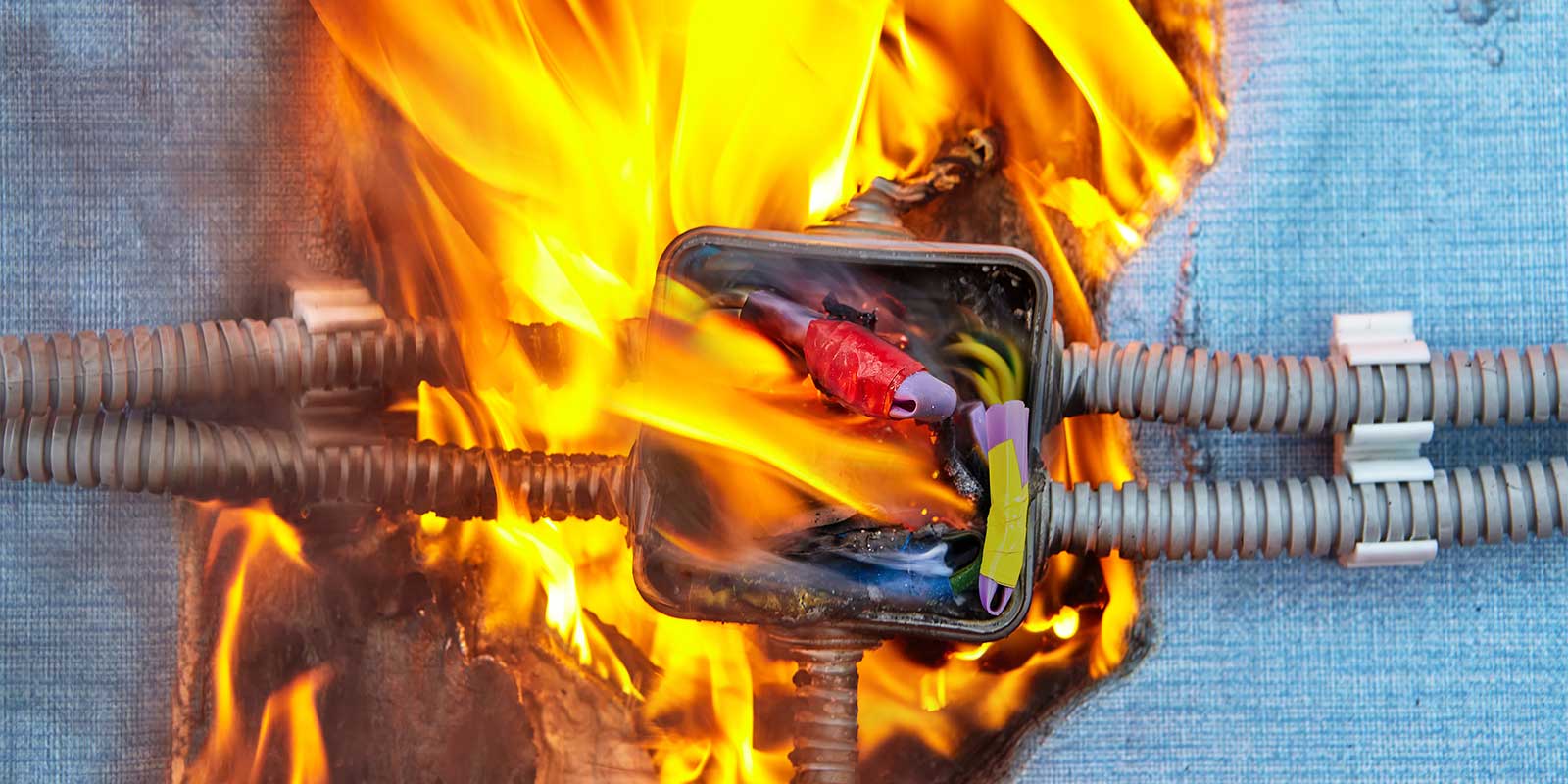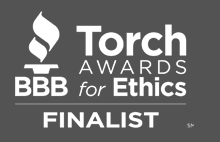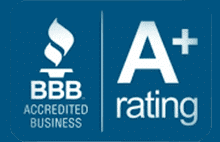Top 10 Electrical Fire Prevention Tips Every Homeowner Should Know
Each year, more than 24,000 residential fires in the U.S. are caused by electrical malfunctions. These types of fires are not only dangerous but also often occur at night, giving families little time to respond. Because electrical fires can spread quickly and silently—often hidden behind walls or inside appliances—they pose a unique risk to homeowners.
The good news? Most electrical fires are entirely preventable with a few simple precautions and a proactive mindset.
In this article, the experts at Mac-Vik, Colorado’s trusted provider of electrical, heating, plumbing, and AC services, share the top 10 electrical fire prevention tips to help you protect your home, your family, and your peace of mind.
1. Don’t Overload Circuits or Outlets
Plugging too many devices into one outlet or power strip is a leading cause of overheated wiring. Overloaded circuits can silently build heat behind your walls, eventually sparking a fire.
Instead:
- Use power strips with built-in surge protection.
- Avoid daisy-chaining extension cords together.
- Spread high-powered devices like space heaters or microwaves across multiple outlets.
Remember: if your breaker trips frequently, it’s a warning sign that something’s not right.
2. Replace Damaged Cords and Outlets Immediately
Frayed cords, cracked wall plates, or warm-to-the-touch outlets should never be ignored. These are indicators of worn insulation or loose wiring—both of which can ignite with even small electrical loads.
Electrical fire prevention tip:
- Inspect cords regularly.
- Replace damaged appliances or cords immediately.
- Call a licensed electrician to inspect warm or sparking outlets.
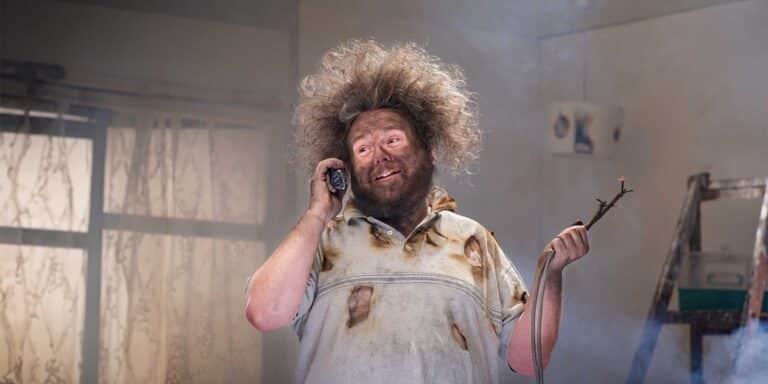
3. Use the Correct Wattage for Light Bulbs
Using a bulb with higher wattage than a fixture is rated for can cause overheating and even melting of socket components, leading to a fire.
Home electrical safety tip:
Always check the maximum wattage label on lamps and ceiling fixtures, and never exceed it—even with LED bulbs.
4. Unplug Small Appliances When Not in Use
Appliances like toasters, curling irons, and portable space heaters can spark unexpectedly, especially when left on or plugged in for long periods.
Unplugging them not only reduces your energy bill but also helps prevent electrical fires at home.
Colorado homes, in particular, rely heavily on space heaters during cold winters, so be extra vigilant about turning them off and unplugging when not in use.
5. Keep Flammable Materials Away from Heat Sources
Curtains, paper, blankets, and rugs should never sit near outlets, heat registers, or electrical appliances. These materials can ignite instantly from just a spark or prolonged heat exposure.
Be especially careful in Colorado winters, when homes are tightly sealed and space heaters are more frequently used.
6. Install AFCI (Arc-Fault Circuit Interrupters)
An AFCI is a special device that detects dangerous electrical arcs caused by damaged or deteriorated wiring and automatically shuts off the circuit before a fire can start.
They’re now required in many building codes for new homes—but older Colorado homes may still be missing this life-saving technology.
Mac-Vik recommends upgrading older panels to include AFCIs for improved safety.
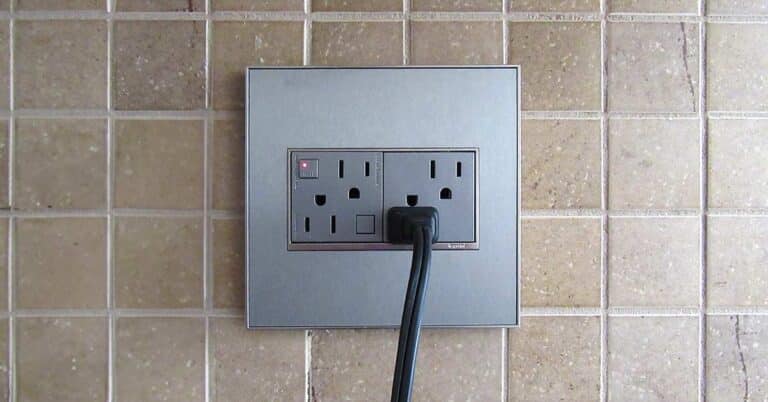
7. Regularly Inspect Your Electrical Panel
Your breaker box is the heart of your home’s electrical system. If you notice:
- Scorch marks or a burnt smell
- Buzzing sounds
- Breakers that trip repeatedly
…it’s time to call a licensed electrician.
Older electrical panels—especially those over 25 years old—may be undersized for today’s technology-heavy households. Upgrading your panel is a smart investment in home electrical safety.
8. Schedule Professional Electrical Inspections
Just like a car needs regular tune-ups, your home’s wiring should be checked every 3–5 years—or more frequently for older or remodeled homes.
A licensed professional can identify hidden wiring issues, overloaded circuits, or outdated components before they become hazards.
Mac-Vik’s licensed electricians offer comprehensive inspections designed to meet Colorado building codes and seasonal demands.
9. Test Smoke Alarms and Install Enough Units
Smoke alarms are your first line of defense in the event of a fire. Yet many homeowners forget to test them—or don’t have enough installed.
- Test alarms monthly
- Replace batteries annually
- Install alarms in every bedroom, hallway, and common area
For added safety, consider upgrading to interconnected alarms that alert the whole home when one goes off.
10. Know the Warning Signs of Electrical Trouble
Sometimes your home will give you clear signs that something is wrong—don’t ignore them.
Call a licensed electrician if you notice:
- Flickering or dimming lights
- Outlets that feel warm or smell burnt
- Frequent circuit breaker trips
- Sparking from outlets or light switches
- Buzzing sounds from walls or fixtures
Being proactive when these signs appear is the key to preventing electrical fires at home.
Safety Starts with Prevention
Most electrical fires are preventable. All it takes is a mix of vigilance, routine maintenance, and help from trained professionals. By following these electrical fire prevention tips, Colorado homeowners can dramatically reduce their risk and sleep a little easier at night.
Remember: Preventing a fire is always less costly—and far less devastating—than dealing with the aftermath of one.
For peace of mind and safety, schedule a professional electrical inspection with Mac-Vik today. Our licensed electricians proudly serve homeowners across Colorado, offering expert care, modern solutions, and a commitment to your home’s safety.
Contact us today for a free consultation or to learn more about upgrading your home’s electrical system.

